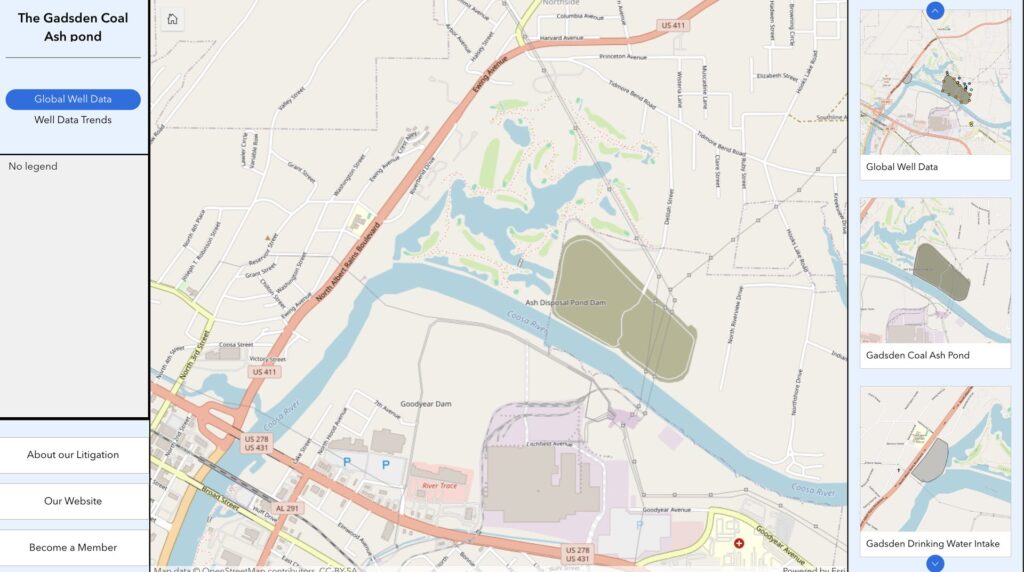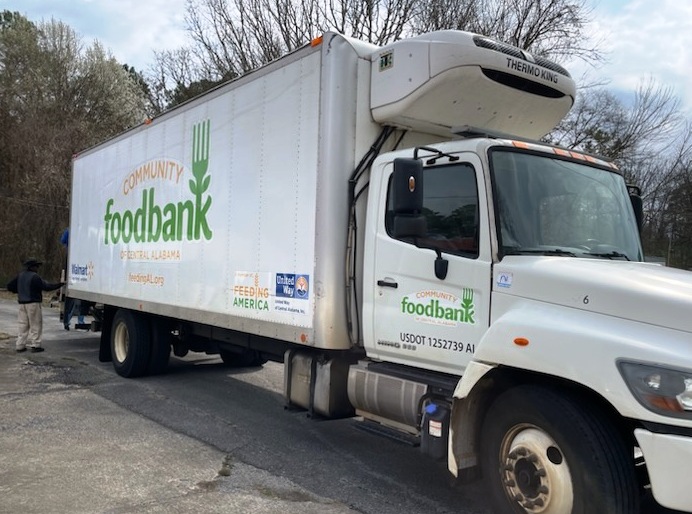Coosa Riverkeeper Sues Alabama Power Over Toxic Coal Ash Pollution at Neely Henry Lake
Lawsuit Alleges Ongoing Groundwater Contamination Threatens Public Health, Environment, and Local Economy

GADSDEN, Ala. — Coosa Riverkeeper has filed a federal lawsuit against Alabama Power Company, accusing the utility of ongoing groundwater contamination caused by a leaking coal ash lagoon at the former Gadsden Steam Plant on the banks of Neely Henry Lake.
The Southern Environmental Law Center (SELC) filed the suit on behalf of Coosa Riverkeeper, arguing that Alabama Power’s method of capping the toxic coal ash pond violates the Resource Conservation and Recovery Act (RCRA) and the federal Coal Combustion Residuals (CCR) Rule, both of which regulate the safe disposal of coal ash.
Coal ash, the byproduct of burning coal for electricity, contains hazardous heavy metals such as arsenic, lead, mercury, and cadmium — substances known to cause cancer and other serious health issues. Despite these risks, Alabama Power chose to store nearly 1.5 million tons of coal ash in an unlined pit in a floodplain along the Coosa River. The company then capped the pit without removing the ash, leaving much of it still submerged in groundwater.
Alabama Power’s own monitoring data from October 2024 revealed groundwater arsenic levels 40 times higher than legal limits. Coosa Riverkeeper and SELC argue this is clear evidence the cap method is failing and that contaminants continue to leach into surrounding groundwater.
“This is a threat to our health, our drinking water, and our local economy,” said Justinn Overton, Executive Director and Riverkeeper at Coosa Riverkeeper. “Alabama Power’s decision to leave coal ash in contact with water is unacceptable, especially so close to a drinking water intake.”
The Gadsden Water Works and Sewer Board draws drinking water less than a mile downstream from the coal ash pond, serving more than 14,000 residents. Neely Henry Lake also supports a robust ecotourism industry, with an estimated economic impact of $570 million in 2017. Advocates warn that a coal ash spill could have catastrophic consequences, similar to past disasters in Kingston, Tennessee, and on the Dan River in North Carolina.
“There is no excuse for a company with Alabama Power’s resources to leave a community vulnerable to toxic pollution,” said Barry Brock, director of SELC’s Alabama office. “Utilities across the South are cleaning up unlined coal ash dumps — Alabama Power must do the same.”
Across the Southeast, utilities have already excavated or committed to removing over 250 million tons of coal ash to safer, lined landfills or for recycling into construction materials. Alabama Power’s sister company, Georgia Power, is in the process of excavating 16 million additional tons. In contrast, Alabama Power has resisted excavation at Gadsden, relying instead on a flawed groundwater monitoring system that, according to SELC, does not accurately measure the extent of contamination.
Coosa Riverkeeper encourages residents to explore its Interactive Coal Ash Map, which displays the location of the coal ash pond, the nearby drinking water intake, and groundwater chemical data reported by Alabama Power.


For more information on the lawsuit and how to support ongoing advocacy efforts, visit www.coosariver.org.
Previous Coverage:
https://weisradio.com/2025/05/21/coosa-riverkeeper-files-a-notice-of-intent-to-sue-alabama-power/




